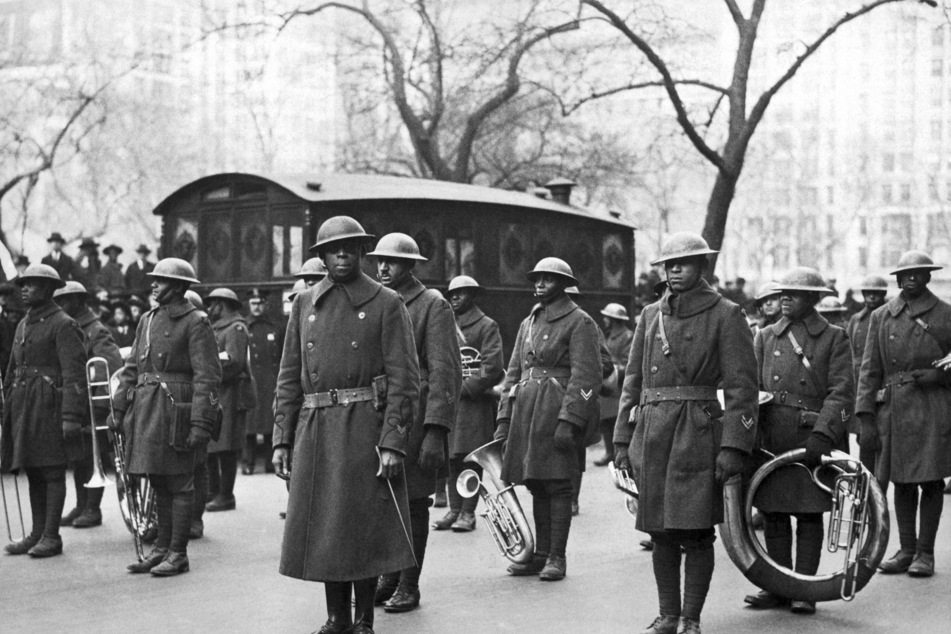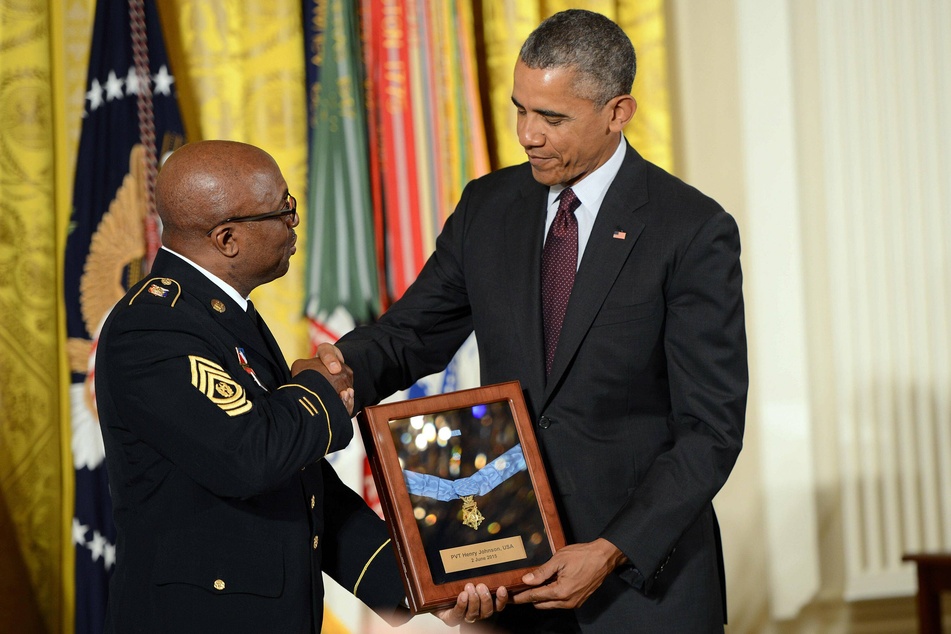US House votes to award Congressional Gold Medal to World War I Harlem Hellfighters
Washington DC – The House of Representatives on Tuesday overwhelmingly voted in favor of a bill to award a Congressional Gold Medal to the Harlem Hellfighters.

The bill to award a Congressional Gold Medal to the Harlem Hellfighters passed in the House with strong bipartisan support. If signed into law, HR 3642 stipulates that the medal would be given to the Smithsonian Institution and made available for research and display.
The 369th Infantry Regiment, dubbed the Harlem Hellfighters, was an all-Black-American regiment in World War I, the bill's text explains. At the time, the US Armed Forces were still segregated.
After white American soldiers refused to work with them, the Black-American regiment was assigned to the French Army. Though members wore US uniforms, they were given weapons and helmets from France, according to a statement by Ohio Rep. Joyce Beatty.
The Harlem Hellfighters served 191 days on the front lines, the longest number of consecutive days spent in the trenches by any US regiment. They also suffered the greatest number of casualties.
Their nickname is believed to have come from German soldiers at the time, who were impressed with the bravery and tenacity the regiment members demonstrated in battle. And not for nothing – they never lost a trench or had a soldier captured.
But despite having arguably the toughest task of any US regiment and facing intense racism from fellow American soldiers, the Harlem Hellfighters returned to the country they had fought and died for – a country that continued to deny Black Americans their most basic human rights.
Many had hoped Black Americans' participation in the war effort would inspire the US government to grant them full citizenship rights, but they were sorely disappointed.
Wider recognition for the Harlem Hellfighters' contributions has been lacking

The Harlem Hellfighters were some of the first Americans to receive France's Croix de Guerre military decoration.
Several individual members of the regiment have received recognition in the US. For example, President Obama awarded Sgt. Henry Johnson, who received a Purple Heart in 1996 and a Distinguished Service Cross in 2002, a posthumous Medal of Honor in 2015. New York Rep. Thomas Suozzi also gave the late Sgt. Leander Willett a Purple Heart in 2019.
But a wider acknowledgement of the Harlem Hellfighters' contributions in America has been lacking.
Suozzi, HR 3642's primary sponsor, praised the bill's passage on Twitter, saying it would "right a centuries-old wrong," as Black-American contributions to war efforts have remained largely overlooked.
New York Senator Kirsten Gillibrand has introduced a companion bill to HR 3642 in the Senate.
If the legislation is approved, the Harlem Hellfighters would become only the third all-Black-American military group, after the Tuskegee Airmen (2007) and the Montfort Point Marines (2011), to receive the prestigious award.
Cover photo: IMAGO / UIG

